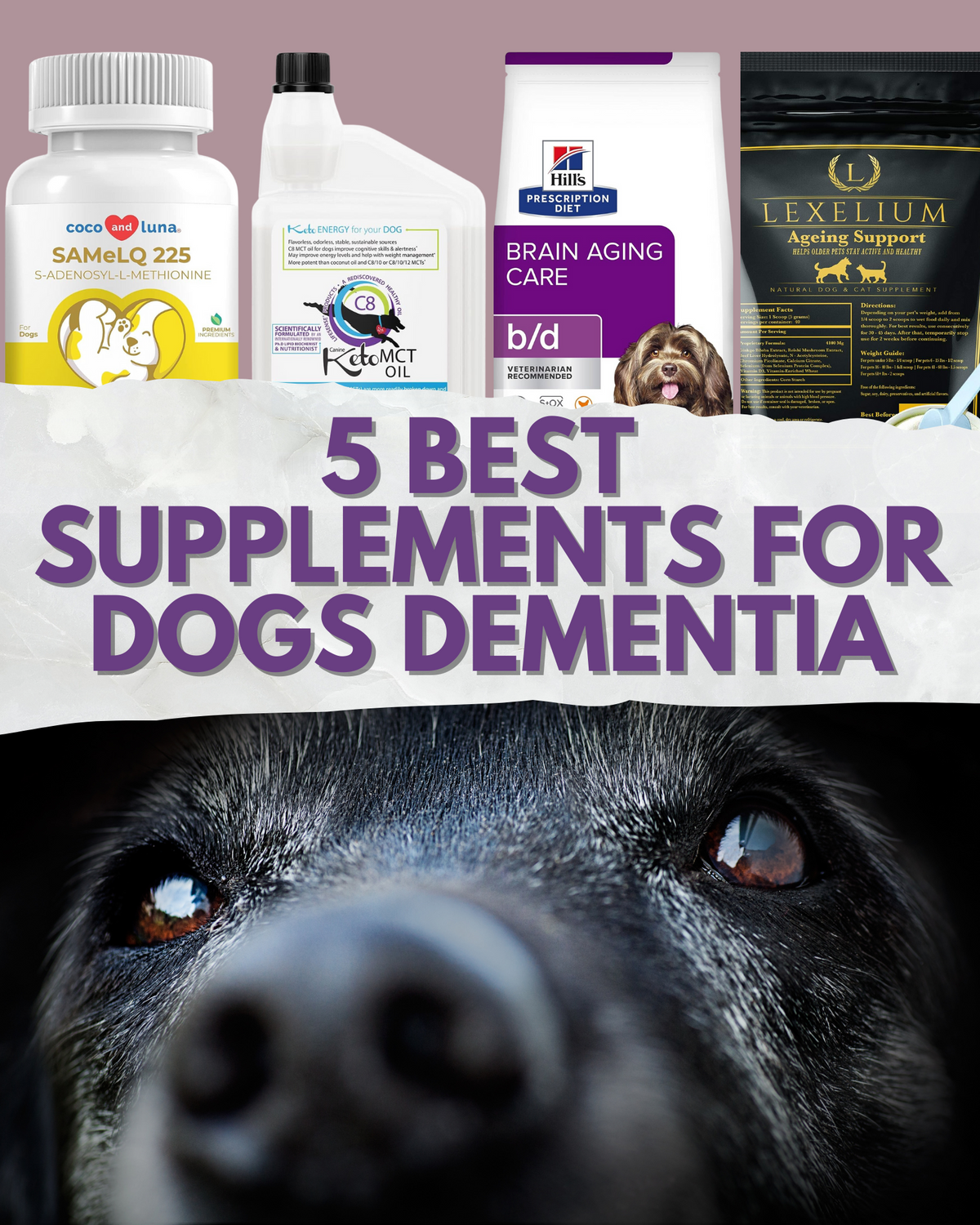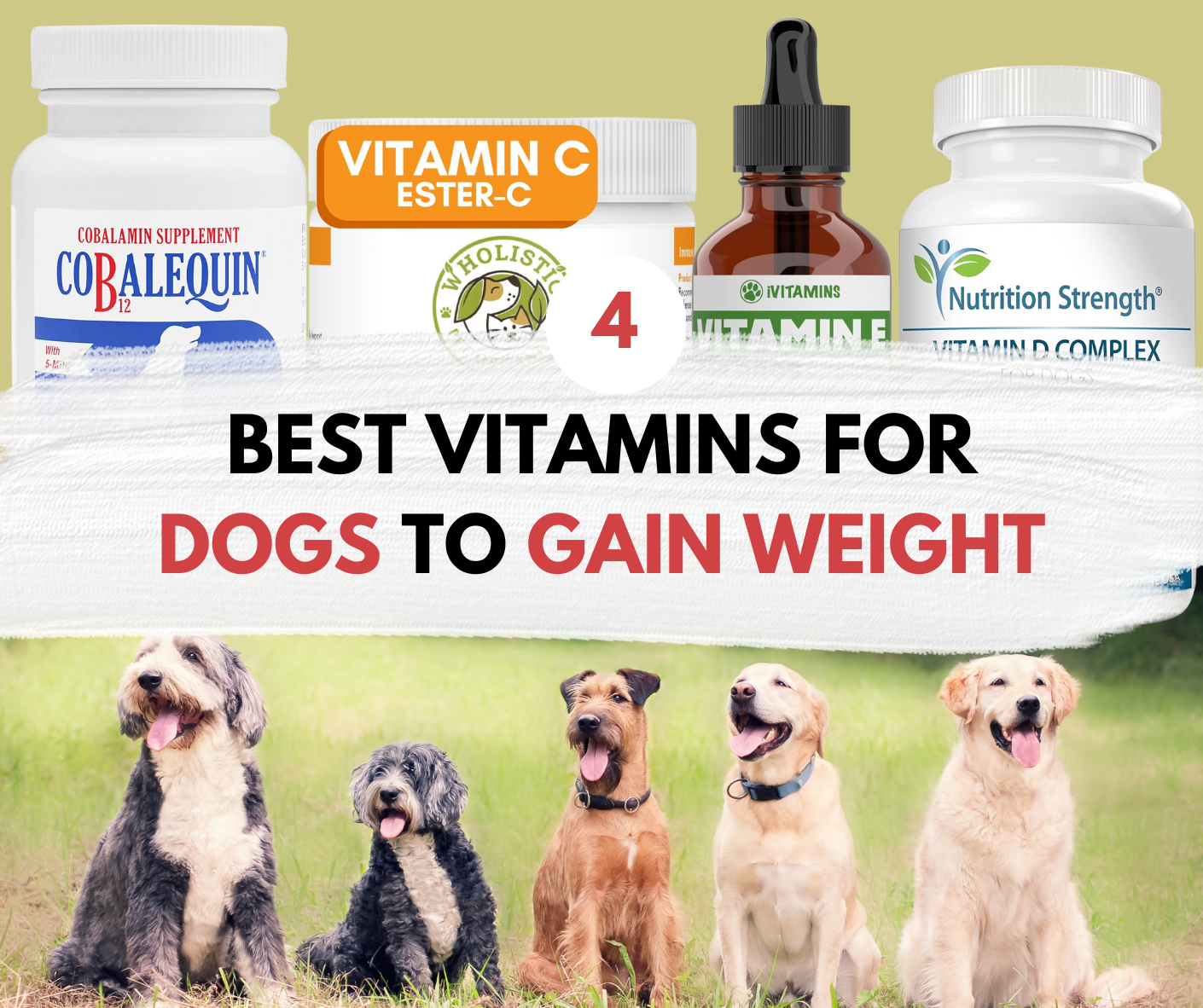For many dog owners, ensuring their furry friends are healthy and happy is a top priority. While much attention is given to preventing obesity in dogs, ensuring underweight dogs gain weight is equally important. A well-balanced diet enriched with the right vitamins and supplements can play a crucial role in achieving this. This guide will explore the four best vitamins for dogs to gain weight and improve their overall health.
Buyers Guide for Vitamins For Dogs To Gain Weight
Understand Your Dog's Needs
Before introducing any supplement, it's crucial to understand why your dog may need to gain weight. Underweight dogs might be experiencing malnutrition, poor absorption of nutrients, or health issues that suppress appetite. Consult a veterinarian to identify any underlying health conditions and to confirm that weight gain is necessary for your dog's health.
Essential Vitamins and Nutrients for Weight Gain
When selecting a vitamin supplement for your dog to gain weight, look for products that contain a balanced mix of the following:
- High-Calorie Supplements: Some products are specifically designed to be high in calories, providing your dog with the extra energy it needs in a concentrated form.
- Protein: A vital component for muscle growth and repair. Supplements with high-quality animal protein sources can support healthy weight gain.
- Omega-3 and Omega-6 Fatty Acids: Essential for skin and coat health, these fatty acids can also stimulate appetite and improve calorie absorption.
- Vitamins A, D, E: These vitamins are crucial for maintaining healthy skin, bones, and immune function. They also support the proper metabolism of calories.
- B Vitamins: Important for energy metabolism and can encourage a healthy appetite.
Consider the Form of the Supplement
Vitamins for dogs come in various forms, including powders, liquids, and chewable tablets. Consider which form your dog prefers and what is most convenient for you to administer regularly.
Quality and Safety
Always choose supplements from reputable brands that have undergone third-party testing and are certified by veterinary boards. Avoid products with artificial additives, colors, or flavors that might harm your dog.
Dosage and Administration
Follow the recommended dosage on the product label or as advised by your veterinarian. Over-supplementation can lead to health issues, so it's essential to adhere to the guidelines for safe and effective use.
Monitor Your Dog's Progress
Keep track of your dog's weight and overall health after starting the vitamin regimen. Adjustments may be necessary based on your dog's progress and any feedback from your veterinarian.
Consult Your Veterinarian
It cannot be overstressed how important it is to consult with your veterinarian before starting any new supplement regimen. They can provide personalized advice based on your dog's specific health profile and dietary needs.
B Vitamins

B vitamins, including B1 (Thiamine), B2 (Riboflavin), B3 (Niacin), B5 (Pantothenic acid), B6 (Pyridoxine), B7 (Biotin), B12 (Cobalamin), and Folic Acid, are crucial for energy production and efficient food metabolism. These vitamins can help underweight dogs by improving their appetite and ensuring they get the most energy from their food.
Sources of B Vitamins for Dogs
- Whole grains (brown rice, barley)
- Beans and legumes
- Meat and fish
- Eggs and dairy products
Vitamin D

Vitamin D is essential for dogs to maintain strong bones and muscles. It helps the body to absorb calcium and phosphorus, which are critical for bone health. For dogs that need to gain weight, especially in a healthy way that includes muscle mass, Vitamin D cannot be overlooked.
Sources of Vitamin D for Dogs
- Fish and fish liver oils
- Fortified foods
- Small amounts can be synthesized from sun exposure
Vitamin E

Vitamin E plays a critical role in protecting your dog's body from oxidative damage and supporting its immune system. It can help ensure that dogs not only gain weight but remain healthy and free from disease.
Sources of Vitamin E for Dogs
- Vegetable oils (sunflower, safflower, and olive oil)
- Nuts and seeds
- Leafy green vegetables
Vitamin C

While dogs can produce Vitamin C in their liver, additional supplementation can help with stress, aging, and recovery from illnesses. It's an excellent support for dogs looking to gain weight, as it can help improve their overall health, making it easier for them to absorb and utilize the nutrients from their food.
Sources of Vitamin C for Dogs
- Fruits like oranges, strawberries, and blueberries
- Vegetables like spinach, broccoli, and potatoes
FAQs
Q: Can I give my dog human vitamins?
A: It's generally not recommended to give dogs vitamins made for humans, as dogs have different nutritional requirements. Always consult with a veterinarian before adding any supplements to your dog's diet.
Q: How do I know if my dog needs to gain weight?
A: Signs that your dog might be underweight include visible ribs, spine, and hip bones, lack of energy, and a thin, patchy coat. A veterinarian can help you determine if your dog is underweight and recommend a diet plan.
Q: How much vitamin supplementation does my dog need?
A: The amount of supplementation your dog needs can vary based on its size, breed, age, and health status. Consult with a veterinarian to determine the right dosage.
Q: Can excessive vitamins harm my dog?
A: Yes, too much of certain vitamins can be toxic to dogs. For example, too much Vitamin A can lead to dehydration, joint pain, and can even be fatal. Always follow the recommended dosage.
Q: Should I opt for natural sources or supplements for these vitamins?
A: While natural sources of vitamins are beneficial, some dogs might need supplements to reach their required nutritional intake. Consult with your vet to decide what's best for your dog.
Best Life At Large Conclusion
Ensuring your dog is at a healthy weight is crucial for its overall well-being. Incorporating the right vitamins and supplements into their diet can significantly help underweight dogs gain weight. Always consult with a veterinarian before making any dietary changes to ensure these additions meet your dog's specific health needs. With the right approach, you can help your dog achieve a healthy weight and lead a happy, active life.
This guide provides a foundational understanding of the vitamins essential for dogs needing to gain weight. However, individual needs can vary greatly, so it's important to work closely with a veterinarian to tailor dietary choices to your dog's specific requirements.
Related Post













Member discussion